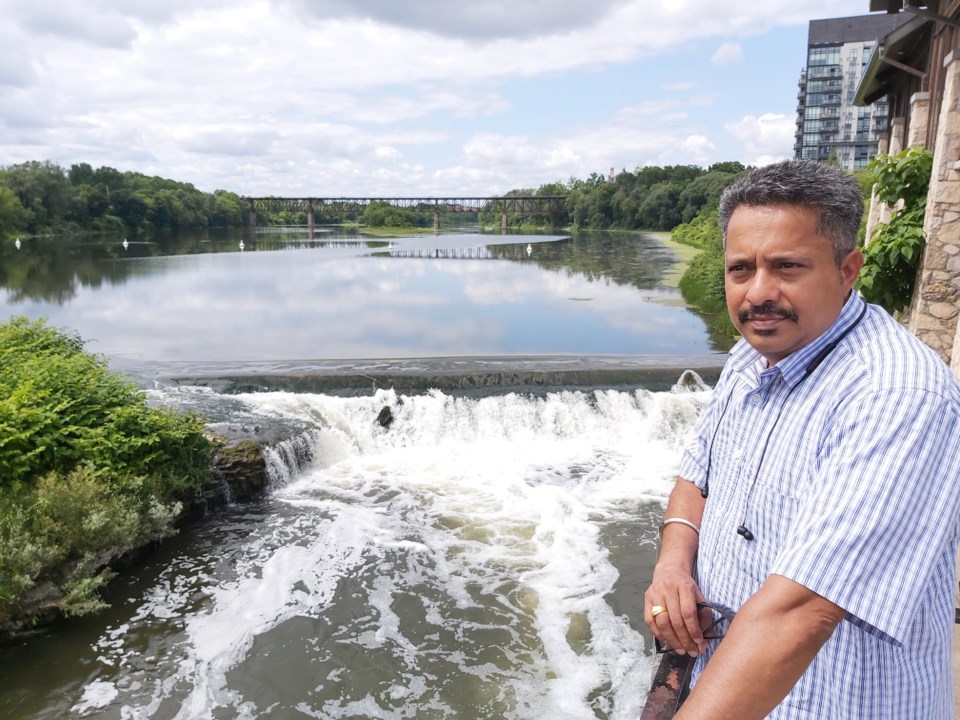Leaders from the Indian community are upset after a jar symbolizing good luck was stolen and thrown in the trash.
At Riverside Park, a parkgoer found the jar on the banks of the river. He posted a photo of the jar on Facebook and noted that he thought it was an "urn" containing ashes.
When questioned what he did with the jar, he replied, "I put it where it belongs."
"I found a perfect place for it, the sign on the can said NO HOUSEHOLD GARBAGE! I thought it was an URN," read the post.
When Prakash Venkataraman learned about the incident, he felt like it was another example of ignorance and intolerance.
"This was not a ritual for a death and there was no ashes," he said. "I knew exactly what it was when I saw it and it's an offering for a newly married couple or someone who has family in the hospital."

Venkataraman said the jar comes from West India and is often placed at the river's edge, containing water, ashes from a fire or earth to represent the elements and ask the gods to bless the contents. Canadian families often leave loonies and toonies in the jar as an offering.
The jar is brought to the river early in the day and then retrieved the next day to be brought home. The water is then placed on the individual the ritual was started for.
"They are praying for their wellness and to assume you know what are they doing, what is happening here and then throwing it in the garbage? That is complete disrespect," added Venkataraman.
"Much like the beliefs of many Indigenous cultures, rivers in particular are considered goddesses, and ceremonies are often held at the river side. Understanding the depth of such practices that occur requires more than a superficial glance; it demands openness and respect."
Venkataraman is a well-known leader in the local Indian community and has previously run for regional council, representing Cambridge.
Back in 2021, he appealed to Cambridge city council to ask if they could provide a space for the releasing of ashes for after-death ceremonies.
The control of the Grand River is out of city jurisdiction and the process would require extensive consultations as Brantford and Ohsweken draw their drinking water from the Grand River downstream of Cambridge.
"We have been dealing with community backlash of performing our religious rituals for years and it is the responsibility of those performing these ceremonies to ensure they don't leave anything on the shores, creating unnecessary attention, and to be good samaritans looking after the environment," said Venkataraman.
"But a ritual like this one that is just wishing for good luck and kindness has no impact on the surrounding environment."
Multiple comments on the Preston Ontario Facebook group post, which has since been deleted, cheered on the disposal of the jar with some members saying that when people come to Canada they need to learn our customs and abide by a "Canadian way of life."
Others noted that Canada is a "Christian nation and should stay like that."
The comments and the removal of religious artifacts have Venkataraman questioning why people are so afraid of others' beliefs and a deeper level of understanding needs to be developed for the community to grow.
He adds that when this family went to pray at the river they were expecting to come back the next day and retrieve their jar. Instead they will come back to discover it has been stolen and thrown in the trash.
"It's sad, it really is. It makes people who are just trying to practice their culture feel like second-class citizens," says Venkataraman.
"They (immigrants) are considering this as a home. They're doing everything for the economy, they are paying taxes; if there is a war they will be in the front line fighting for Canada. What more do you want as a Canadian citizen to be accepted?"
Venkataraman hopes that the community can continue to get along and not let cultural differences turn people against each other when there are bigger issues to worry about.
"In today's age everyone wants to be a watchdog and that's not fair, but if something is bothering you then call the city and let someone whose job it is handle the situation. Don't just throw something in the trash. It's ignorant."



